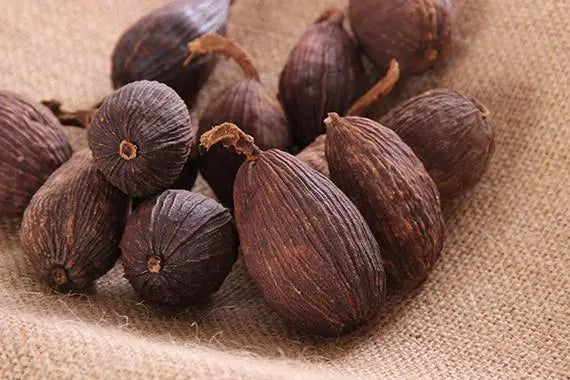Moisture medicine
Any medicine that smells fragrant, is warm and dry in nature, and has the main function of dispelling dampness and invigorating the spleen is called dampness dispelling medicine.
The spleen likes dryness and dislikes dampness, "soil likes warmth and likes fragrance". This kind of medicine is pungent and warm-drying, and it mainly enters the spleen and stomach meridians. The aromatic products can wake up the spleen and remove dampness, and the warm-drying medicines can dry dampness and strengthen the spleen. At the same time, its acridity can promote qi, its fragrance can ventilate, and can activate the qi mechanism of the middle burner to relieve the pathogenesis of stagnation of spleen and stomach qi caused by dampness. In addition, some medicines also have the functions of relieving heat and warding off filth.
Dampness-resolving medicines are mainly applicable to diseases such as internal resistance of damp turbidity, spleen dampness, and abnormal transportation and transformation, such as fullness in the abdomen and abdomen, vomiting with pantothenic acid, loose stools, lack of food and body fatigue, sweet mouth and excessive salivation, and white and greasy tongue coating. In addition, some medicines can also be used for dampness-temperature and summer-heat-dampness syndromes.
When using dampness-resolving medicines, proper compatibility and application should be carried out according to different conditions and concurrent syndromes of dampness. Such as dampness stagnation of qi, epigastric distention, fullness and stuffiness, it is often compatible with qi-promoting drugs; such as dampness resistance with cold dampness, cold pain in the abdomen, it can be compatible with warming and dispelling cold medicine; such as spleen deficiency dampness, abdominal pain For those with poor appetite and mental fatigue, it is often used in combination with Qi-invigorating and spleen-invigorating drugs; if it is used for damp-warm, damp-heat, and summer-heat-dampness, it is often used together with products for clearing away heat and dampness, relieving heat, and promoting dampness.
Dampness-removing medicines are aromatic and contain volatile oils. They are usually taken as powders for better curative effect. If they are put into decoctions, they should be taken after decoction, and should not be decocted for a long time, so as to avoid the loss of volatile active ingredients and reduce the curative effect; most of these medicines are pungent and fragrant. Dry products tend to consume qi and damage yin, so those with yin deficiency, blood dryness and qi deficiency should use it with caution.
Tsaoko
It was first recorded in "Dinning Zhengyao".
This product is the dry mature fruit of Zingiberaceae Tsao Guo. This product has a specific aroma, pungent and slightly bitter. It is better to be big, plump, reddish brown in color and strong in smell. Stir-fry and remove the shells to take the kernels, or use it for broiling with ginger juice, and mash when used.
[properties of medicine] pungent, warm. Return spleen, stomach warp.
[Efficacy] Drying dampness and warming the middle, cutting off malaria and eliminating phlegm.
【application】
1. Cold-damp internal resistance, abdominal distension and pain, fullness and vomiting
This product is pungent, warm and dry, with strong gas and strong flavor. Its power of drying dampness and warming the heart is stronger than that of cardamom, so it is mostly used for abdominal fullness, distension and pain, vomiting and diarrhea, and turbid and greasy tongue coating due to prevalent cold and dampness.
2. Malaria cold and fever, plague fever
This product is fragrant and turbid, warms the spleen and dries dampness, eliminates phlegm and stops malaria. Treatment of malaria cold and fever, plague fever and so on.
[Usage and Dosage] Decoction, 3~6g.
[Cautions for use] Use with caution in patients with yin deficiency and blood dryness.

